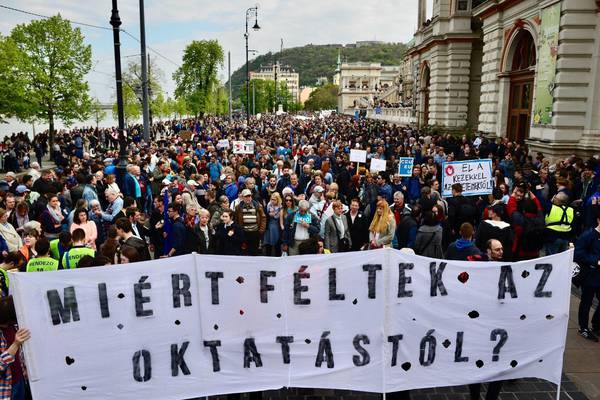New Europe, between post-Socialism and Euro-scepticism
Transitional phenomenon or real threat?
29 May, 15:29* Int. Labor Office, Geneva.
Euroscepticism in post-socialist Europe can be pure propaganda (Hungarian premier Viktor Orbán, who compared the EU to the Soviet Union), non-participation in joint initiatives (Czech Republic, Hungary, Poland and Slovakia rejecting migrant quotas), but also provocations, such as the retaliation threats by the Polish government after Donald Tusk's re-election to President of the European Council. However, a systematic analysis may reveal whether the euro-sceptic parties are a serious threat to the Union. Post-socialist Euroscepticism is quite different from the Western one: being caused, as sociologist Attila gh underlined, by the lack of convergence between the living standards (Estern and Western) after 10 years of EU membership. The gap has widened and the European East has been downgraded to a branch that provides low-skilled labourforce to Western economies. The influence of Copenhagen's requirements for becoming part of the EU disappears after a country's accession into the EU and the European Parliament does not exercise adequate scrutiny: the European People's Party has never sanctioned Orbán's party, the Association of Young Democrats (Fidesz). The lack of control justifies post-socialist Euroscepticism in Eastern Europe, whose goals only occasionally coincide with the interests of the French National Front or the Lega Nord (migrants, Islam, Euro). Despite rhetoric, oriental euro-scsicism is more interested in being powerful 'at home' than in the Union's policies. The population is generally pro-European and many polls (Eurobarometer, Pew Research Center) show that dissatisfaction in post-socialist countries is focused on national policy rather than EU policy. According to Eurobarometer, two-thirds of EU citizens believe it is more difficult to manage the EU institutional apparatus after enlargement to ten Eastern European countries. Whereas the new member states are too small and quarrelsome to have a decisive influence on the European Council, the euro-sceptic parties are even less successful in parliament because the three major Eurosceptic groups resulting from May 2014 general election do not often cooperate. Such fragmentation represents a formidable obstacle for post-socialist euro-sceptic parties.
Talking about governments, moreover, the Czech Republic and Slovakia are only moderately euro-sceptic.Even when explicit Euroscepticism occurs, cooperation is still a matter of pragmatism, the recent election of Donald Tusk has shown. In short, even though Western media are obsessed with post-socialist Euroscepticism, this attitude is too soft, fragmented, and oriented towards internal politics to pose a threat to the EU. However, this causes a widespread feeling of dissatisfaction in central and eastern Europe. This should be a matter of concern for European politicians, who should avoid a radicalisation and unification of Eurosceptics, post-socialist and western European ones.














